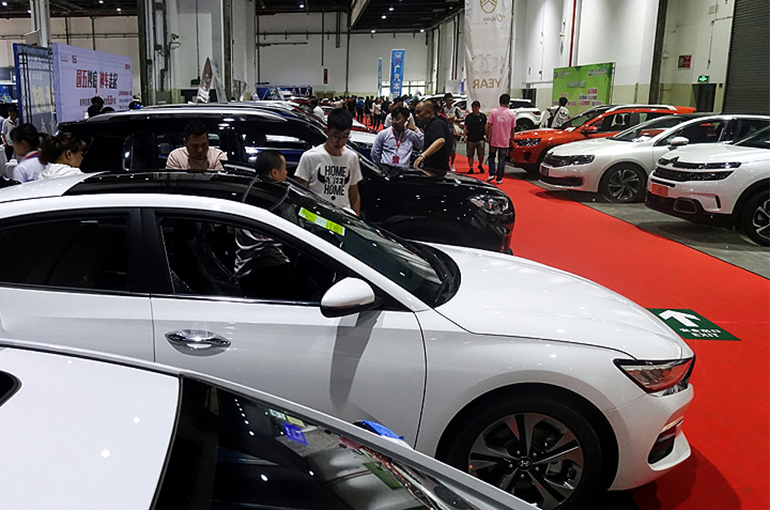 China’s Car Sales Fall 1.9% in May on Weak Showing by Joint Venture Makers
China’s Car Sales Fall 1.9% in May on Weak Showing by Joint Venture Makers(Yicai) June 12 -- Auto sales in China dropped 1.9 percent last month from a year earlier, pulled down by declining sales at joint venture carmakers.
Retail sales of passenger vehicles came in at 1.7 million units in May, according to data released by the China Passenger Car Association yesterday. JV manufacturers saw sales tumble 21 percent to 490,000.
Sales of new energy vehicle totaled 804,000 units, up 39 percent, while their market penetration rate climbed to 47 percent from 34 percent a year ago. JV automakers were mainly impacted by weak sales of fuel cars, which fell 23 percent to 910,000.
The demand for fuel cars and NEVs is different, with an outright and full replacement impossible, according to the CPCA. Ongoing sluggish consumption of conventional fuel vehicles is a key factor restraining the market’s overall recovery, it noted, adding that the government’s trade-in policy will help strengthen the market over the coming months.
BYD, Geely Auto, Chery Automobile, and Tesla ranked among the top 10 carmakers by sales last month, gaining 22 percent, 59 percent, 32 percent, and 30 percent, respectively.
Sales of FAW-Volkswagen Automotive, the JV of FAW Group and Volkswagen, tumbled 17.5 percent, the most among the top 10 automakers in China, followed by SAIC Volkswagen Automotive's drop of 11.9 percent. GAC Toyota Motor saw sales slide 10.3 percent, while Dongfeng Nissan Passenger Vehicle’s dipped 0.9 percent.
Retail sales by Chinese auto brands jumped 12 percent to 980,000 in May, with their market share growing to 57.6 percent from 50.3 percent a year earlier.
China’s vehicle exports jumped 30 percent by volume to 569,000 units and 17 percent by value to USD10.5 billion, according to customs data. NEV exports fell 4 percent to 94,000, accounting for almost 25 percent of passenger car exports, down from 31.8 percent.
Europe may raise tariffs on cars imported from China by about 20 percent, said Cui Dongshu, secretary-general of the CPCA. But Chinese automakers will remain committed to developing in Europe, integrating locally, and achieving sustainable development, Cui said, adding that they will not take extreme measures or engage in low-price strategies, and will not disrupt the overall stability of the European industry.
The European Commission will tell automakers today that it will for the time being levy additional tariffs of as much as 25 percent on Chinese EV imports starting from next month, the Financial Times reported, citing people familiar with the decision.
Editor: Martin Kadiev